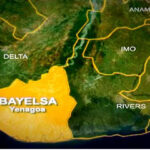Barely two years after the presidential assent to the Petroleum Industry Act (PIA), the host communities and operators of the multinational oil companies in Bayelsa State are at loggerhead over the effective implementation of the Host Community Development Trust (HCDT) as provided in the PIA.
Former President Muhammadu Buhari had on August 21, 2021 signed into law the Petroleum Industry Act, which has a provision for host communities to enjoy three per cent of the earnings from crude oil.
The Act also mandates the incorporation of host communities’ development trust by companies known as settlors under the PIA. The settlors are companies that have a petroleum prospecting licence or petroleum mining lease whose area of operation is located around any community or communities where oil infrastructure crosses.
Accordingly, incorporation of the trust is to be done within a particular timeframe stipulated in the PIA, while penalties for non-compliance are stipulated in the PIA as well as the Nigeria Upstream Petroleum Host Communities Development Regulations 2022.
Gains of Tinubu administration’s policies to materialise soon – Al-Makura
3 terrorists, 1 soldier killed in gun duel in Kaduna
Recently, the people of Amatu ll Community in Ekeremor Local Government Area of Bayelsa State, an oil-bearing community, have rejected the purported demands by communities in Estuaries Area (EA) oil field operated by Shell Petroleum Development Company (SPDC) for a separate HCDT.
A community leader in Amatu II, Chief Paul Oweipade, said the purported decision for a separate HCDT is coming as a surprise to the people of the EA host communities particularly Amatu II Community who are well known for their prowess in multinational oil companies, government and community relations and administrations.
However, other community leaders had informed SPDC that they would not want to be clustered alongside other communities of the EA oil-field under one HCDT, a demand that has been rejected by a section of chiefs and elders of Amatu II Community.
The PIA provides for the incorporation of HCDT in oil and gas-producing communities where oil/gas companies are mandated to make an annual contribution to the HCDT of an amount equal to three per cent of the company’s actual annual operating expenditure of the preceding financial year, for developmental projects in the host communities.
Reacting to the controversies, Chief Oweipade, in a statement to newsmen in Yenagoa, said those communities in the area seeking a separate cluster for the trust fund should be ignored.
He said: “Amatu I, Amatu II, Besangbene, Letugbene, Azamabiri, Orobiri, and Ogbeintu communities seeking a separate HCDT should be ignored because the people of Amatu II situated directly opposite the sea Eagle, whom the acronym EA was founded has never sat in a meeting to deliberate and agree to go into a separate HCDT, with the aforementioned communities.
“Amatu II community is neither a ghost community, nor a fishing camp where its leaders can sit in a hotel room or drinking bars to make decisions and expect such decisions to be binding on every person.
“To this purpose, the good people of Amatu II have categorically stated that they are not a party to any separation, so let SPDC and the general public take note.
“Let us lecture the advocators of the separation theory, if truly such advocators mean good for the Iduwini kingdom, clusters or institutions or associations are found on either ancestry backgrounds or common laws benefits or coercion, but since we have been put together as a group based on benefits of the common law by the government and SPDC, we are good with it.
“But if this association of common law benefits fails in future, we cannot practise another common law benefits; instead, we will embrace ancestry backgrounds which Azamabiri, Orobiri and Ogbeintu do not belong to and will not ever belong to, because we are Iduwini people.
“Interestingly, if truly the people of Amatu II community wants to seek a separate PIA, it will be an Iduwini all-inclusive PIA, where the following communities and others of Iduwini origin are to be host, namely: Amatu I, Amatu II, Amatu-agoliyo, Ikeka-ama, Ingodiama, Igunugbene, Lagos-ama, Besangbene, Letughene 1, Letughene 2, Aghoro 1, Aghoro 2, Bakiri-ama, Iyapregha-zion and others of Iduwini origin; not these other communities like Azamabiri.
On the other hand, seven communities at Shell Petroleum Development Company (SPDC) Estuary Area (EA) in Ekeremor Local Government Area of Bayelsa State have insisted on their autonomy in the development trust.
The communities said they will continue to resist plans by SPDC to join them with five others in the HCDT.
The opposing leaders of the communities including; Bisangbene, Amatu 1, Amatu II, Letugbene, Orobiri, Ogbintu, Azamabiri, said they would not hesitate to shut down the company’s operations if their demand was ignored.
Chairman of Bisangbene community, Mr Timothy Geregere, and his counterpart in Amatu II community, Mr Ebis Rames, who spoke in separate interviews, maintained their stand that they would not want to be clustered alongside other communities, adding that they had made the position clear in several letters to the company.
“We want to be treated separately in the EA oil field and we have written several letters to SPDC. We have also demonstrated that we need separation.
“We will not allow divide and rule in our communities, so we are telling the world that we should be allowed to operate a separate trust.
“The separation is necessary because we are about twelve communities in the EA and the twelve communities cannot live together.
“We were initially about four different clans operating the GMoU. When the PIA came, they invited us for a meeting, where they told us about it, and right in the meeting, we told Shell that we needed separation but they wanted to force the twelve communities together but we said no.
“If there is no separation in the PIA, there will be no operation in the EA field. For the past years, we have been making peace, giving them an enabling environment to operate and we have already built peace to almost 89 per cent but they are the ones now causing a problem.
“We will shut down their operations, because I think for the past two years, even the GMOU has not been operating properly. The communities are not benefiting anything for the past three years.
“SPDC brought a community content plan to us; I think precisely last year, and demanded that communities should sign and the communities have signed and SPDC refused to sign its part.
“Up till this minute we are saying they should sign their own part of the documents and we also want the GMoU, the remaining part of the GMOU to be paid to the communities,” they said.
Shell unlocks $56.13m for host communities
Recently, Shell Petroleum Development Company, operator of the SPDC joint venture, had unveiled eight Host Community Development Trusts (HCDT) in Bayelsa State, with a critical step for unlocking the $56 million earmarked for development in line with the provisions of the Petroleum Industry Act (PIA) 2021.
According to the oil multinational, the eight trusts are among 22 that have been incorporated in SPDC JV’s areas of operation in Imo, Delta, Rivers and Bayelsa states, representing more than half of the total 41 which the Nigeria Upstream Petroleum Regulatory Commission (NUPRC) has so far approved for host communities. “This is indeed a milestone which will ensure progress of the communities, it said.”
SPDC managing director and chairman, Shell companies in Nigeria, Osagie Okunbor, in an address read by the General Manager of Corporate Relations, Igo Weli, during the unveiling ceremony in Yenagoa, said the Act would not deliver the intended development if “communities allow internal strife and chieftaincy struggles to negatively impact the setting-up of, or operations of, the trusts.’’
“Regardless of the noble intentions of the PIA as well as the moral and financial support of government, SPDC and other operators, the development of communities ultimately rests on the shoulders of community people themselves.”
He said with its knowledge of the Niger Delta from over 60 years of operations, SPDC is managing a seamless transition from the Global Memorandum of Understanding (GMoU) initiative, which it introduced in 2006, to HCDTs, a key provision of the PIA which was signed into law in August 2021.
“It also assisted in the development of a Needs Assessment and development plan for communities. The $56.13 million represents funds to be paid this year by SPDC JV and Shell’s deep-water subsidiary, Shell Nigeria Exploration & Production Company Limited (SNEPCo) as contribution to HCDTs in line with PIA requirements.
He charged the stakeholders in the community trusts that have been incorporated to work towards development in the Niger Delta through peaceful co-existence and collaboration with oil companies.
When contacted, the spokesperson for Shell Petroleum Development Company (SPDC) Mr Michael Adande, promised to get back to our reporter but he did not neither did he respond to message or phone calls.
Also, Bayelsa State Commissioner for Mineral Resources, Mr Ibieri Jones, did not also pick his calls or reply a text message to respond to the state government’s position on the Host Community Trust Fund crisis.

 Join Daily Trust WhatsApp Community For Quick Access To News and Happenings Around You.
Join Daily Trust WhatsApp Community For Quick Access To News and Happenings Around You.

